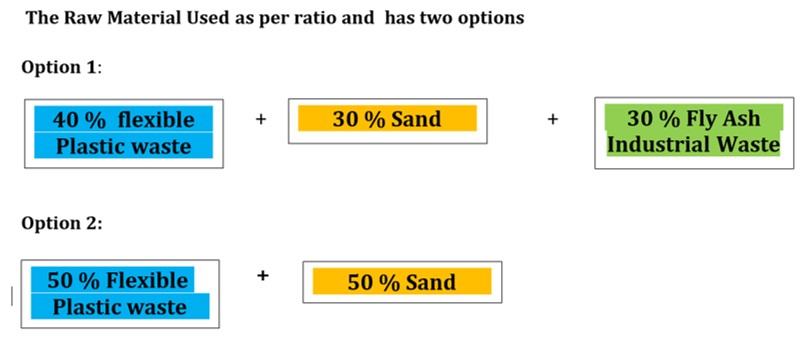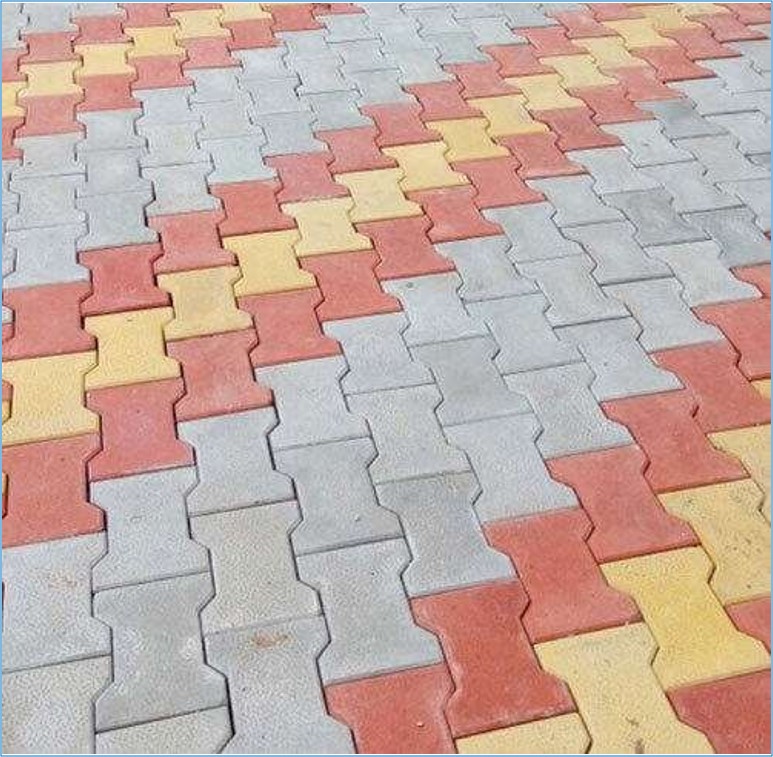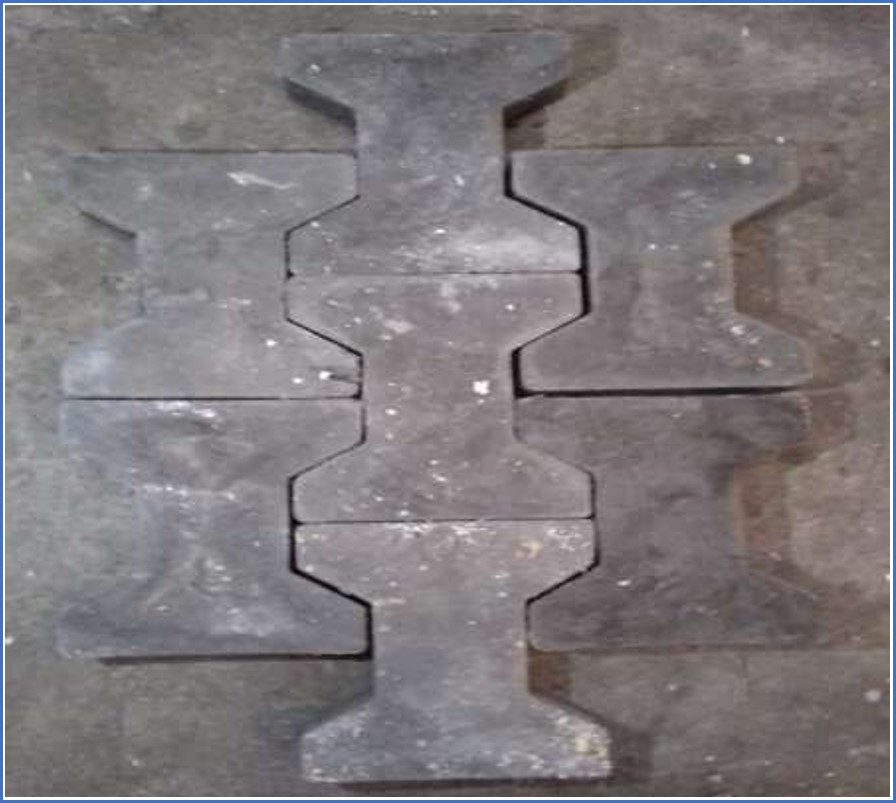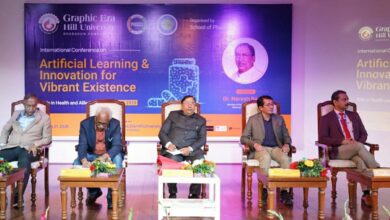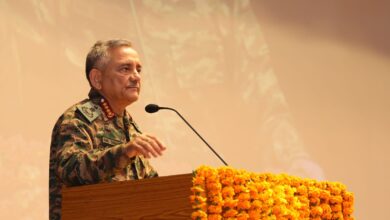Sustainable solution for managing plastics waste, Any Takers ?
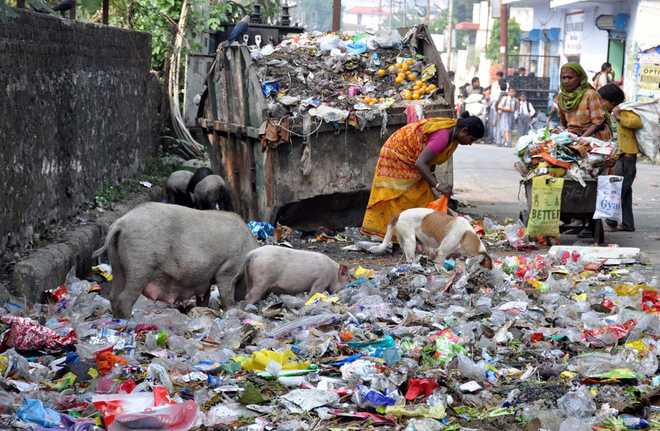
Sustainable solution for managing plastics waste, Any Takers ?
By Vipin Kumar
Dehradun, Dec 22
The indiscriminate market-based growth and the people following a consumerist culture, has lead to an ‘un-manageable waste generation’. Not long ago it was considered a phenomenon for the towns and the cities of the fast-emerging economies evident in the growth pattern of the Urban areas. At present it is everywhere. The Urban areas in general and the ones which form the Peri-Urban areas and villages.. Urban clusters, witness indiscriminate and unmanageable waste generation. All this garbage is to be managed by the Local Bodies.
The Swachh Bharat Mission (SBM) requires every Local Body to put in place a functional waste management system. At present the Local Body functionaries have taken some initiatives through outsourcing Solid Waste Management but have yet to take an initiative for a sustainable Plastic Waste Management.
The increased use of light weight flexible Plastics and their disposal is a major challenge to waste managers. Besides, being a cause of visual pollution, their indiscriminate disposal leads to blockade of the soil porosity, drains and sewers. It needs to be remembered here that such waste has a very low value addition, which is a cause for its littering here and there.
The polymers being diverse in their composition lack compatibility and as such have to follow different recycling processes. However, there are technological innovations which transform mixed polymers along with the Non-recyclable multilayer laminated packaging (MLP) in to Paver Blocks. The finished product post recycling are called as Paver blocks which has a tensile strength matching concrete cement pavers. This end product can be used by the local bodies in making lanes, bye lanes and footpaths as an essential condition in the contract agreement of the civil work contractors.
The proposed system shall be outsourced to MSME/NGO’s/Voluntary Organisations/Civil Society Organization/Self Help Groups/Business enterprises or units already working in SWM and other entrepreneurs to operate the unit in a Public Private Partnership mode.
This system is envisaged to generate employment directly and in directly through linking the informal sector and waste pickers. The project shall generate income for the Municipal Corporation, waste pickers and waste dealers through Incentivisation and sale of Pavers. After one-time capital investment by the Government , the Private partner shall bear the Operation and Maintenance cost thereby rationalising costs which incur on a day-to-day basis. This model will be a self-sustainable system in the area of Plastic Waste Management. On Assessment of Plastic Waste and MLPs a formula to generate revenue through Extended Producers Responsibility shall be evolved as an extra source of Income for the Local Bodies . Such an arrangement is working successfully in two such centres in Uttarakhand. The volume and variety of non-bio-degradable wastes increases dramatically in peri urban,
Religious pilgrim centres and enroute villages and urban areas as average incomes rise and consumer items, particularly processed foods become more widespread. This predominantly occurs in lightweight packaging materials, which remain un-collected for recycling. It needs to be kept in min d that Plastics are fellow travellers with human travelling.
The legal responsibility for collecting, storing and disposing of these wastes lies with the Local Bodies .Unfortunately providing scientific SWM services to residents of Urban and Rural areas has not caught attention to date. While waste management services and infrastructure comprise an important component of any SWM system, it is ultimately the participation of individuals and community that will ensure its success. The key to sustainable waste management for environment conservation lies through real ownership of the projects and infrastructure. This can only occur if the initiative comes from local residents, by separating their solid waste at source. The role of the urban and rural local bodies is to raise awareness, motivate change, assist with project development, and support the initiatives established by the local self government.. This needs to occur in a strategic and considered manner.
The strategy of local bodies both Rural and Urban is clearly spelt out in the Plastic Waste Management Rules 2016, 2018, 2022 which addresses the issue of managing waste right from the House Hold to the community level. The Paver model generates revenue but not enough to meet the expenses accruing in collection and disposal.
However, it is certainly an incentive to convert waste into wealth. The Urban area develops a sense of responsibility through citizen’s participation in the form of user charge along with segregating waste at source thereby learning conservation of resources.
Plastic is a highly useful material and its applications are expected to increase as more new products and plastics are developed to meet the growing demands. The increased use and production of plastics is a particular concern as the waste management infrastructure is not developing at an appropriate rate to deal with the increasing levels of flexible plastic waste including the non- recyclable multi-layer laminates.
At the heart of the problem is one of plastic’s most valued properties is durability. This combined with the throwaway culture that has grown around plastic products means that we are using materials that are designed to last, but, for short term purposes. Thus, the mounds and dunes of plastics ( legacy ) are depositing in our environment which need to be managed scientifically to avoid their long-term impact on the environment.
In countries like Germany, Sweden, Japan and other developed countries such waste is collected and through extrusion is moulded into useful material. They recycle around 45 % to 60 % of film waste and set up targets for every year to achieve 100% collection and extrusion of such waste. Belgium is pioneer throughout Europe recycling mixed and contaminated plastic waste into end products. The machines comprise of low-pressure adiabatic extruder, an automatic moulding turret and easily interchangeable moulds.
The Technological solution to flexible plastic waste is suggested through conversion of plastic legacy waste into Durable Road Pavers.
